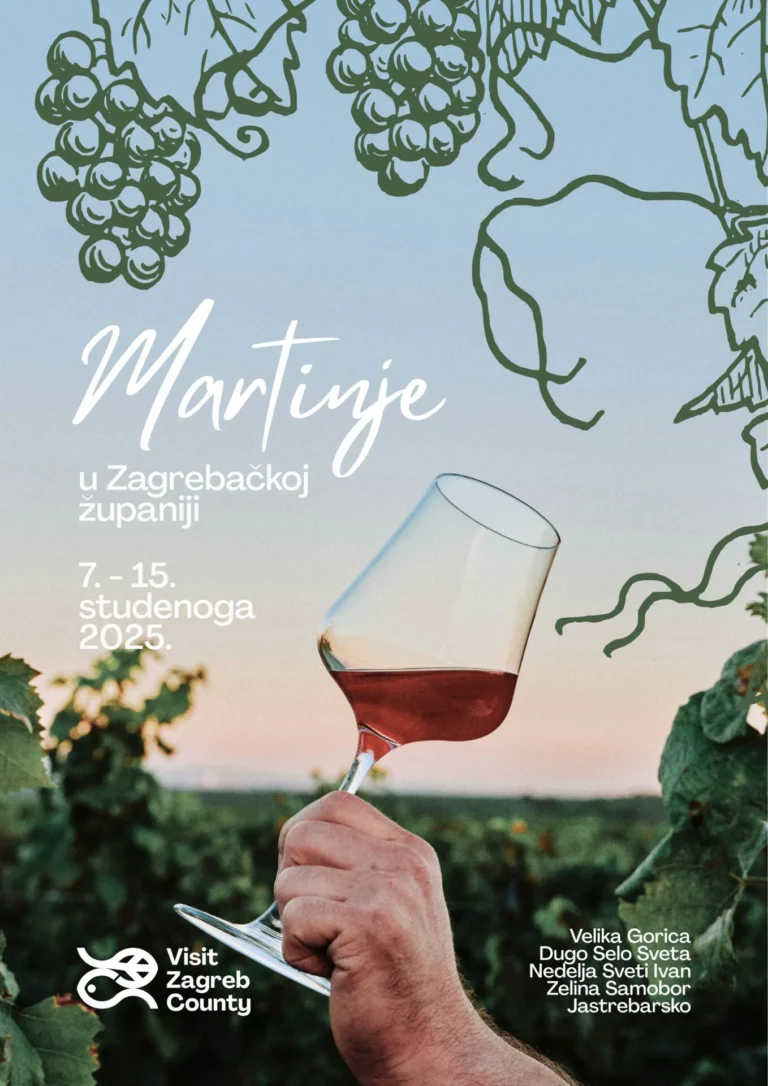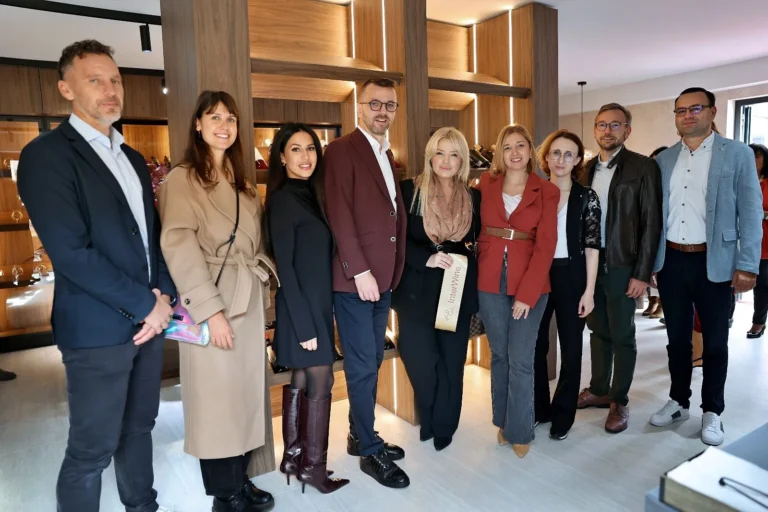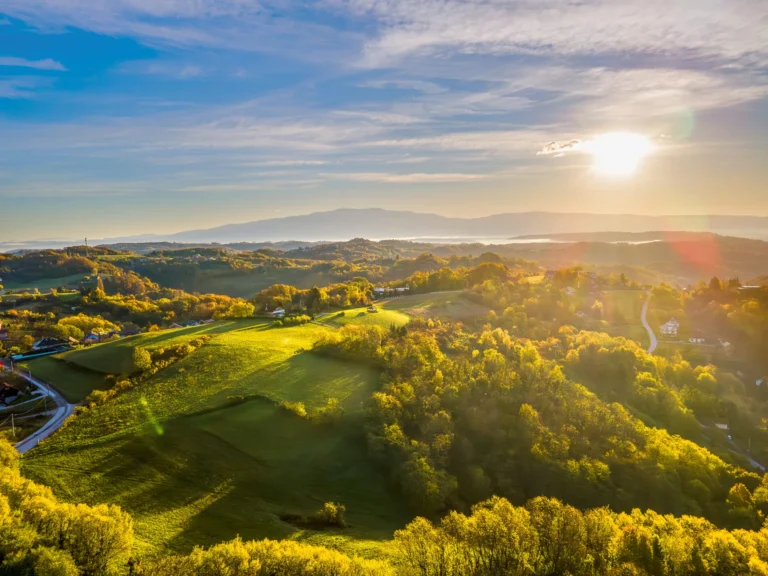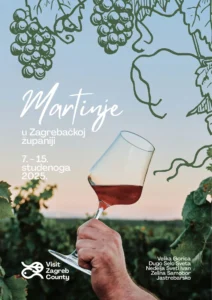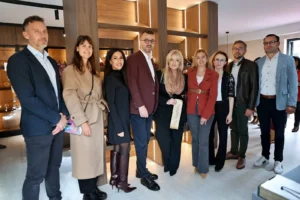Tourism represents one of the most dynamic sectors of the economy; however, it is also notably sensitive to the impacts of climate change. Its reliance on weather conditions, natural resources, and seasonal variations renders it particularly susceptible to increasingly frequent climate extremes, including heat waves, droughts, diminished snow cover, and alterations in the ecological balance of ecosystems.
It is essential to consider the adaptation of tourism to ensure long-term sustainability, safeguard natural and cultural heritage, and create new opportunities that effectively address climate challenges. Zagreb County, renowned for its abundant natural diversity, cultural heritage, and eno-gastronomic offerings, possesses significant potential for the development of sustainable and climate-resilient tourism.
Tourism and Climate Change: Principal Challenges and Adaptation Strategies
Seasonal tourism during winter months is significantly impacted by insufficient snowfall
As the extent of snow cover diminishes, low and mid-mountain destinations in Central Europe encounter significant challenges. Consequently, the exploration of alternative forms of winter tourism—including hiking, cycling, wellness activities, as well as cultural and gastronomic pursuits—has become essential for sustaining visitor attendance.
Exploring the Excitement of Summer Tourism Amidst Scorching Heat Waves
The increase in average temperatures may diminish the appeal of southern Mediterranean destinations during the summer months. Conversely, continental locations such as Zagreb County may experience a rise in tourist interest due to a more temperate climate. This shift presents opportunities for the development of ecotourism and slow tourism, enabling visitors to engage with nature, rural landscapes, and authentic local experiences.
Severe weather phenomena and the imperative of environmental conservation
The increasing frequency of droughts and wildfires necessitates the implementation of strategic management practices for both water resources and forest ecosystems. The preservation of clean water sources, along with the protection of natural areas, is essential for maintaining the quality of the tourism industry.
Ecological sustainability and biodiversity
The preservation of natural environments significantly influences the quality of tourism offerings. The Zagreb County Tourist Board, under the leadership of Ivana Alilović, is actively engaged in the development of models that prioritise ecotourism, rural tourism, and sustainable development of destinations.
EUROPEAN FRAMEWORK AND STRATEGIES FOR SUSTAINABLE TOURISM
The European Commission has outlined the EU Strategy for Sustainable Tourism in its document titled "Europe, the World’s No. 1 Tourist Destination." This strategy is centered around four primary objectives:
- Enhancing competitiveness within the tourism sector
- Fostering sustainable, responsible, and high-quality tourism practices
- Reinforcing Europe’s stature as a consortium of sustainable destinations
- Maximizing EU financial instruments is key to effectively supporting tourism initiatives.
European Green Deal and Sustainable Tourism – The plan aims to reduce CO₂ emissions, promote a circular economy, and protect natural resources. Sustainable tourism encompasses the use of environmentally friendly technologies, minimising plastic waste, and promoting the development of green infrastructure.
Interreg Euro-MED and regional funds
The Copernicus Service for European Tourism is a comprehensive platform designed to monitor critical climate indicators, including temperature, fire risk, snow conditions, and water quality. This information is invaluable for the strategic planning and adaptation of tourism initiatives, enabling stakeholders to make informed decisions that align with environmental conditions.
GUIDELINES FOR SUSTAINABLE TOURISM IN ZAGREB COUNTY
1. The advancement of ecotourism and rural tourism involves the promotion of natural landscapes, wine routes, cultural heritage, and local products.. 2. Smart Resource Management – Boosting energy efficiency, reducing plastic waste, and ensuring clean drinking water for everyone. 3. Expanding the Tourism Experience – Embracing a variety of activities such as cycling adventures, wellness retreats, and cultural explorations to break free from the constraints of seasonal tourism. 4. Connecting Tourism with Other Sectors – Fostering collaboration between tourism, agriculture, environmental conservation, and water management to ensure a sustainable future for travel. 5. Embracing EU Funds – Get involved in exciting initiatives like Interreg! 6. Education and Awareness Raising – Engaging the local community and tourism professionals in initiatives aimed at adapting to climate change is essential.
THE FUTURE OF TOURISM IN ZAGREB COUNTY
Through the implementation of strategic initiatives and the integration of sustainable solutions, Zagreb County has the potential to emerge as a premier continental destination within Croatia. By prioritizing the preservation of natural resources, promoting genuine cultural experiences, and leveraging innovative technologies, it is possible to establish a sustainable, competitive, and financially viable tourism sector for the long term.
Discover Zagreb County, where age-old traditions harmoniously blend with cutting-edge innovation and the breathtaking beauty of nature takes center stage in our tourism experience!

